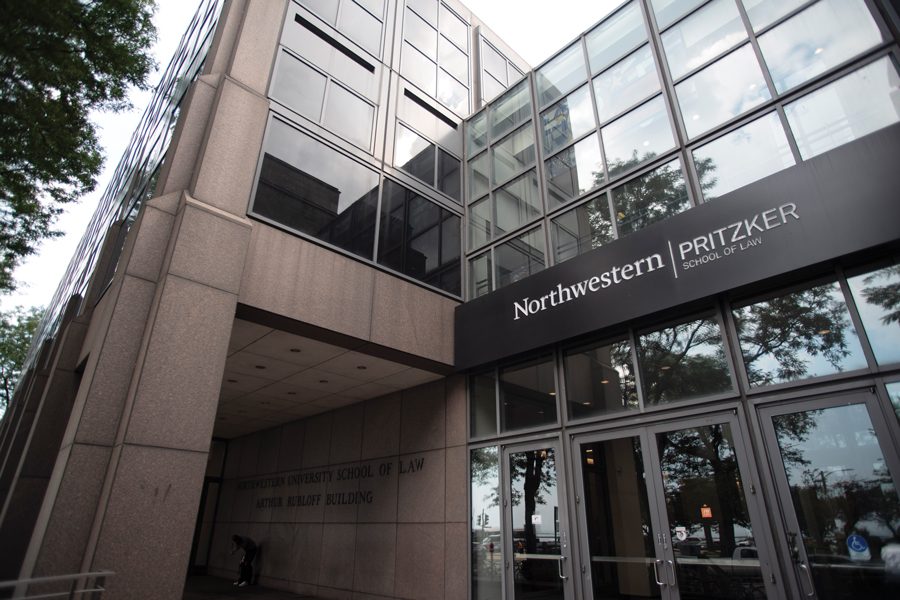Dramatic reading of “The Exonerated” play reveals stories of death row exonerees
Daily file photo by Colin Boyle
The Pritzker School of Law. Seigle’s $5 million donation to Pritzker will support the Seigle Clinic for Immigrant Youth and Families.
April 16, 2021
In 1994, Gary Gauger was wrongfully placed on death row, but was proven innocent a few years later. After his sentence was overturned, Gauger was profiled in a 2000 play called “The Exonerated.”
Northwestern’s Pritzker School of Law and School of Communication hosted a dramatic reading of the play Thursday — a reading that has a connection to the University because Gauger was a death row client at NU’s Center on Wrongful Convictions.
“I was one of the lucky people… my friends were behind me, they went to Chicago (and) tried to get lawyers,” Gauger said. “I also realized how totally screwed this up was, and I went into (the experience) realizing I’ve got to turn this into a positive experience.”
“The Exonerated,” written by Jessica Blank and Erik Jensen, tells the stories of six innocent people, all of whom were sentenced to death for murders they did not commit. The characters are based on real individuals interviewed by the playwrights throughout the writing process.
Director Jordan Donica said the reading marks the 10th anniversary of the abolition of the death penalty in the state of Illinois. Each exoneree offers a unique perspective on the justice system, along with the spirit that carried each one through their time on death row.
A younger version of each of the exonerees was incorporated into the reading, playing alongside their older counterpart — a choice Donica said was made to emphasize the impact of the justice system.
“I was struck by what this does to the innocence of youth, and how people maintain that innocence in the face of a system that seeks to destroy all of who they are,” Donica said.
Pritzker’s Interim Dean James Speta said the reading intends to emphasize the most critical issue in the criminal justice system: the death penalty. While there is continued advocacy for abolishing the death penalty, wrongful convictions still exist in society today.
Speta said 185 innocent people have been exonerated from death rows around the country, and the Center on Wrongful Convictions has been at the heart of this fight for justice since its launch in 1999. The Center has represented over 45 individuals in legal proceedings that have led to their exonerations, he said.
“It is my hope that tonight’s event will further accelerate our discussions around the country and result in critical reformation of the death penalty and other criminal justice issues that result in wrongful convictions,” Speta said.
Speta said the 10th anniversary coincides with the resurgent national effort to abolish the death penalty, both at individual states and the federal level.
School of Communication Dean Patrick Johnson said the event fulfilled the school’s mission of creating a “more expansive, inclusive and justice-oriented creative community.” He also praised the talent of the students, staff and alumni involved.
“We’re using performance to call attention to the state’s ongoing participation in these rituals of human sacrifice, but also to demonstrate how we might use performance as a radical act of resistance,” Johnson said.
Johnson said he also wants to broaden the scope of material students study and perform so it includes works by artists from underrepresented groups, or stories of people at the margins.
Ultimately, Donica said it was “special” to bring together different members of the Northwestern community for this reading.
“Tonight is to celebrate those who have been freed, but it is also to lift up those who are still waiting,” Donica said.
Email raynasong2023@u.northwestern.edu
Twitter @RaynaYu_Song
Related Stories:
— Community members discuss racism at play stage reading
— Author, NU alum Leslie Pietrzyk explores grief, loss at reading



